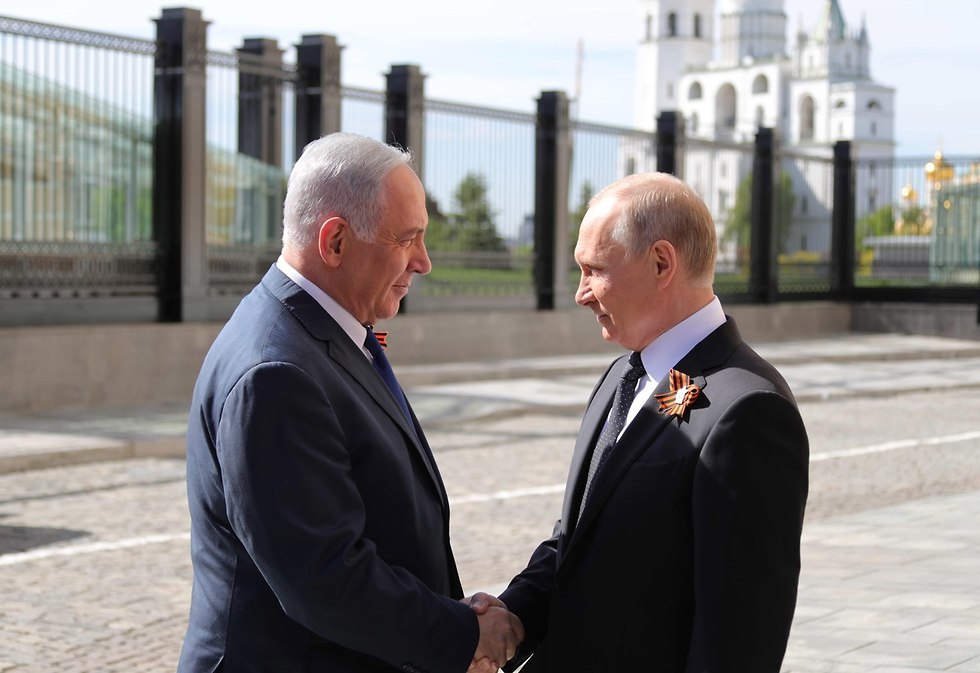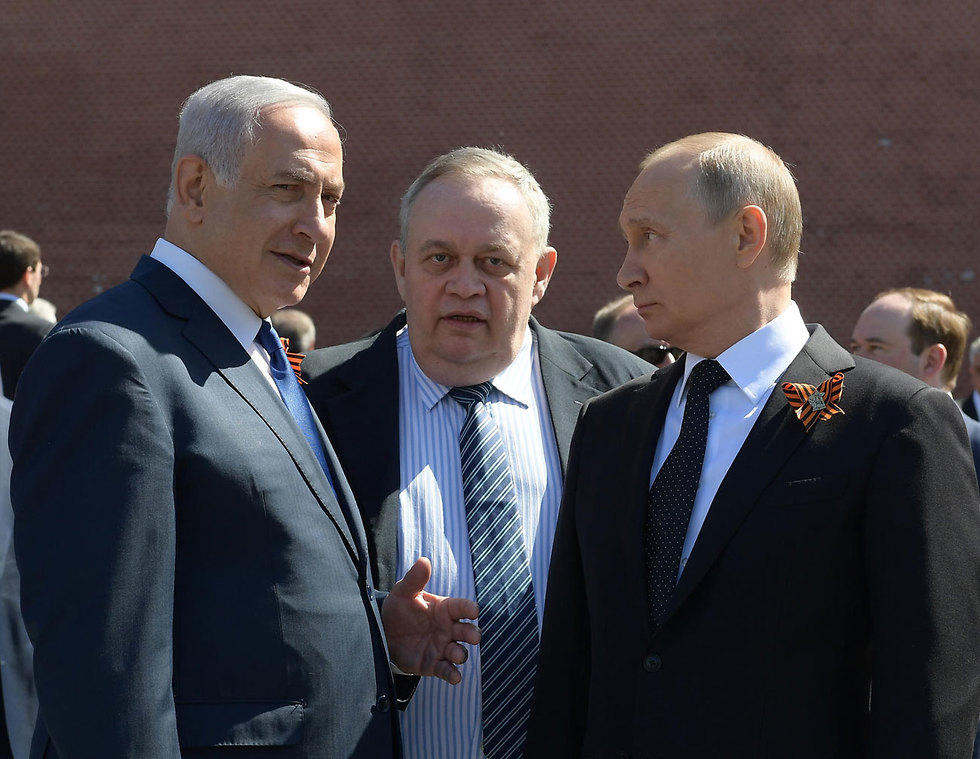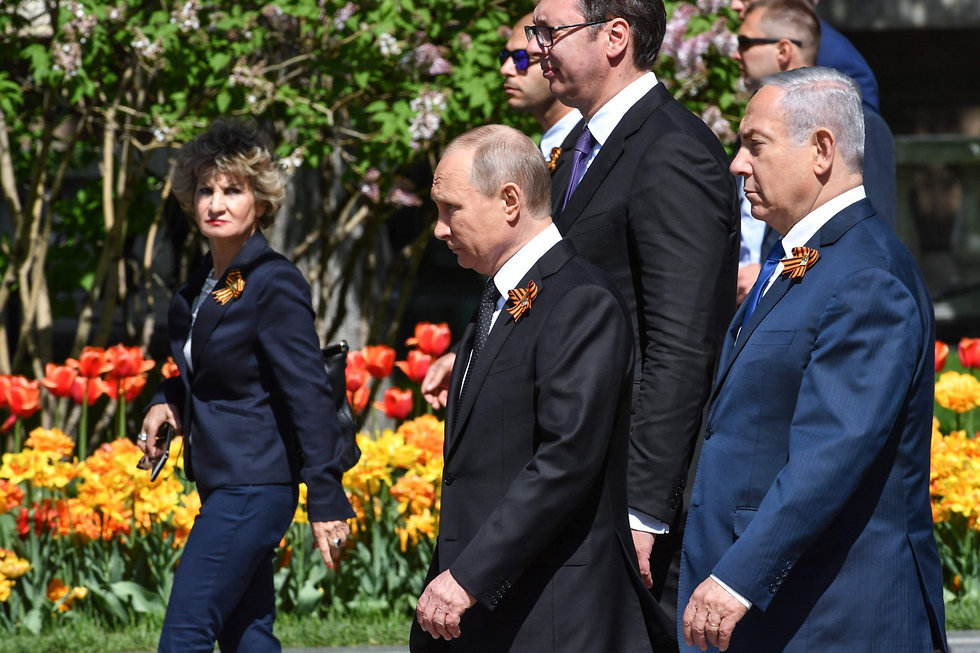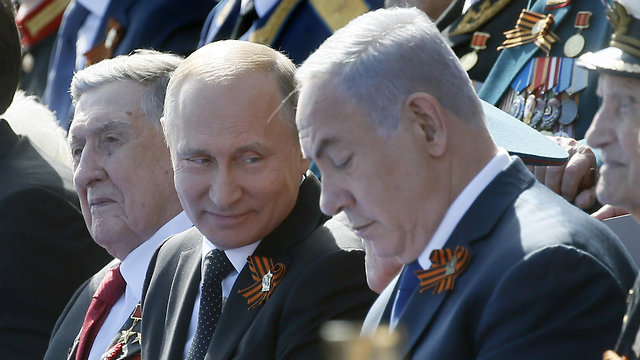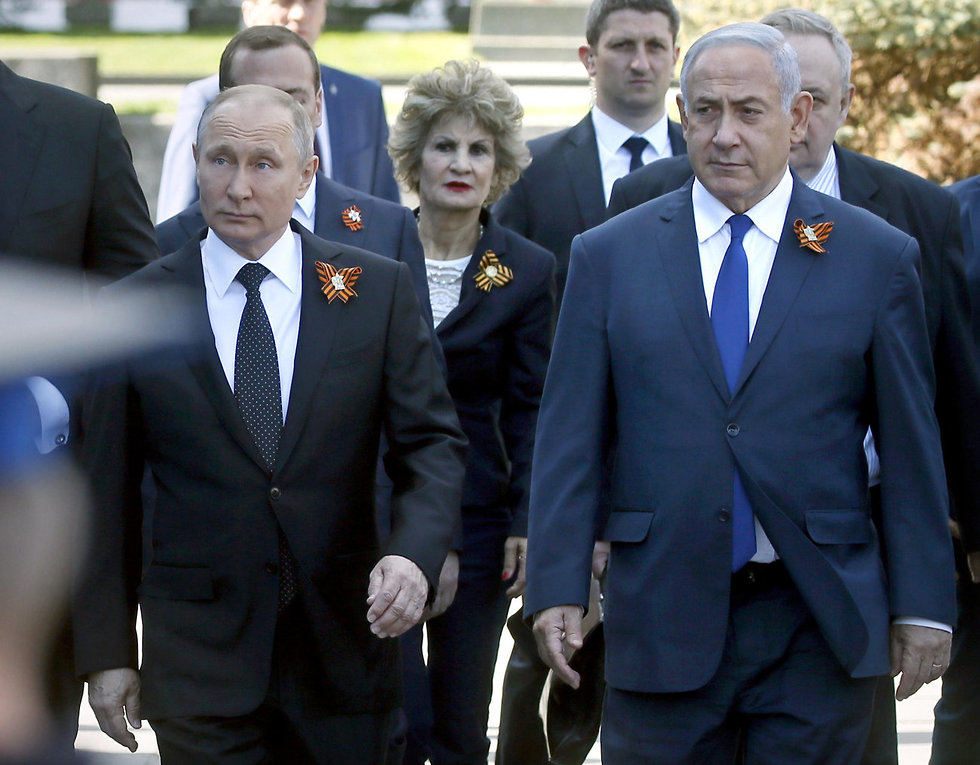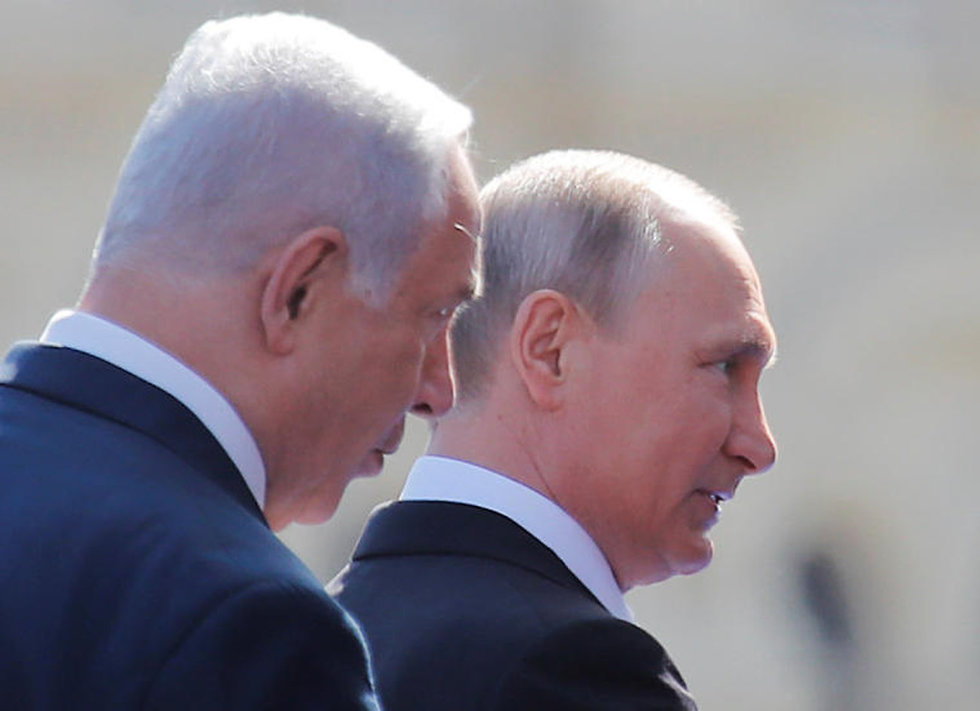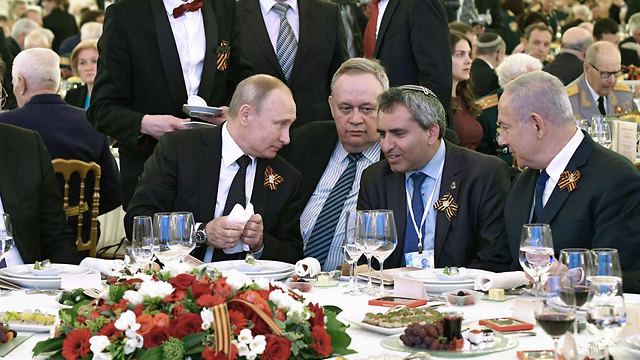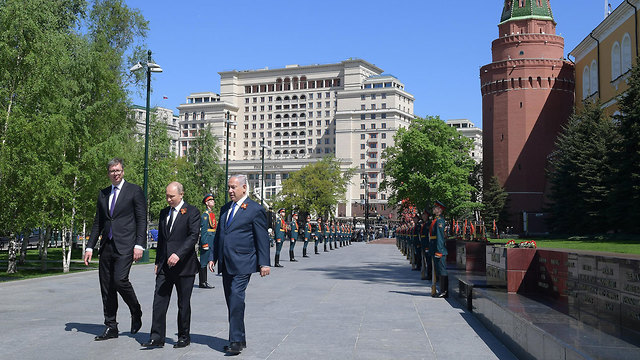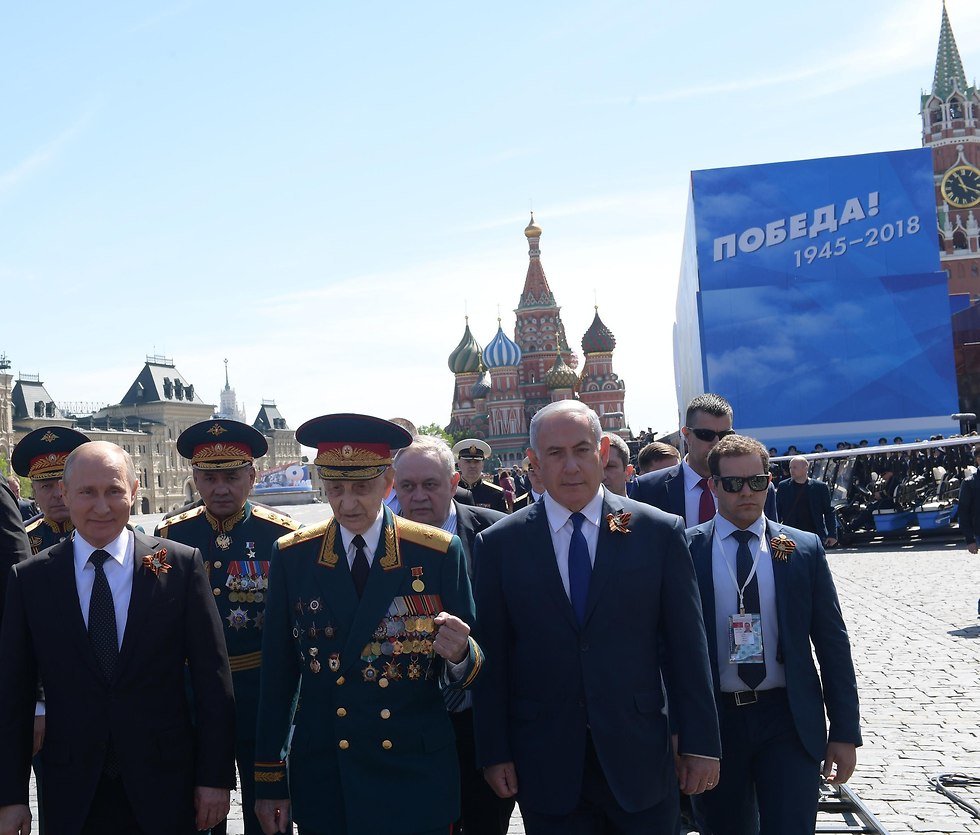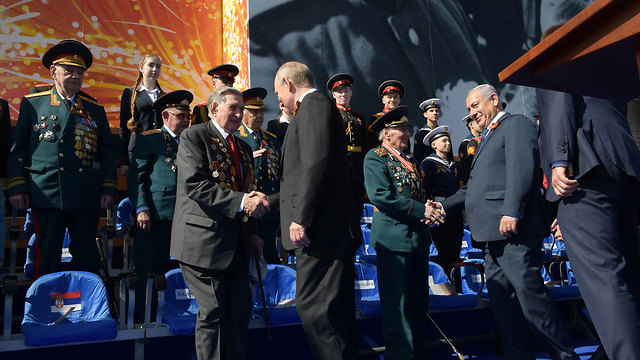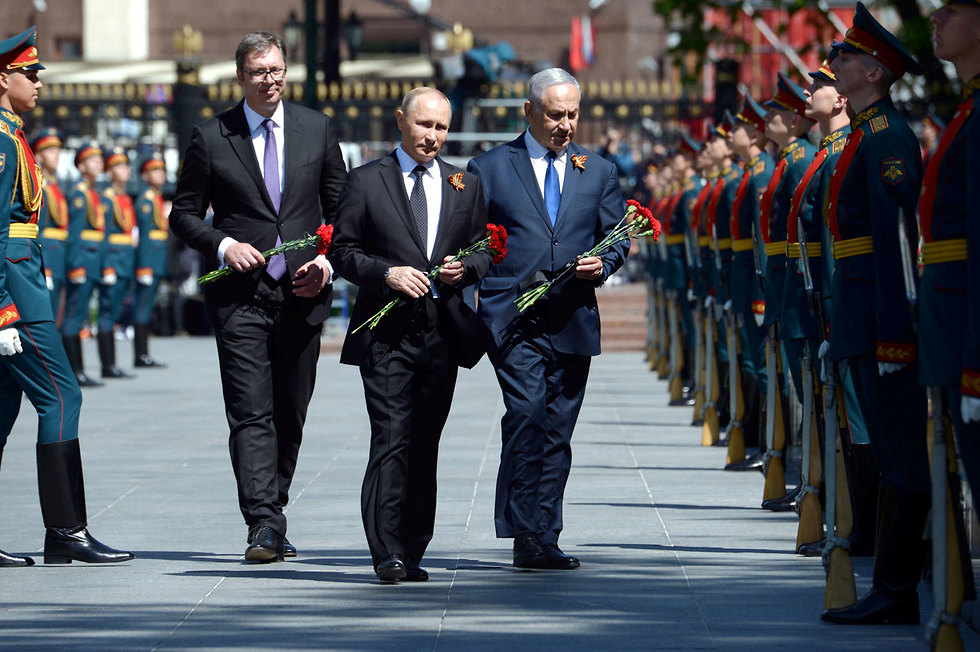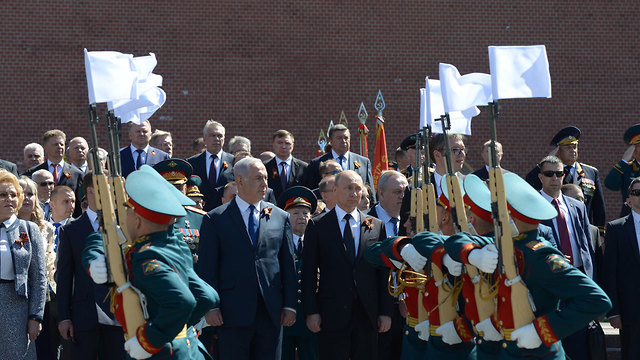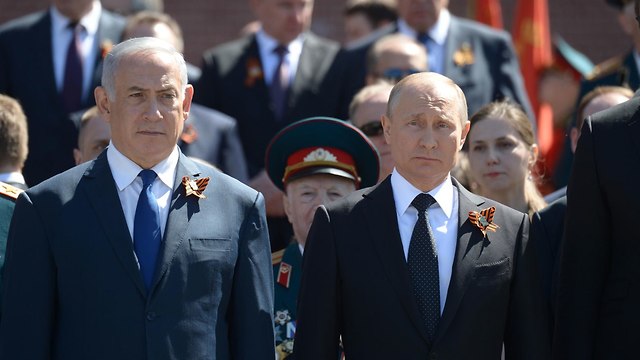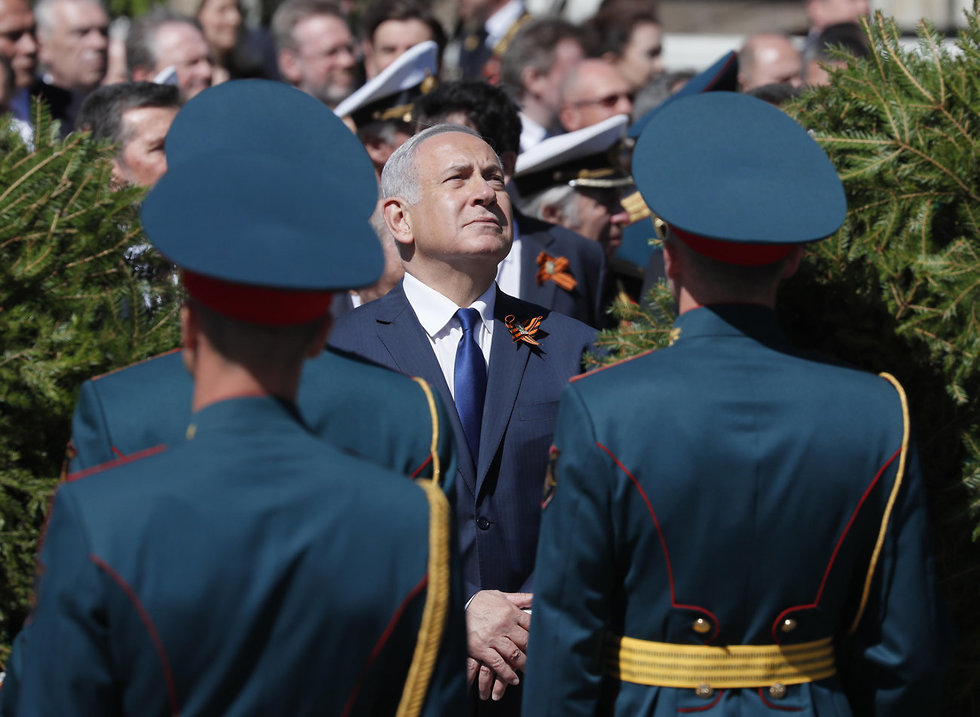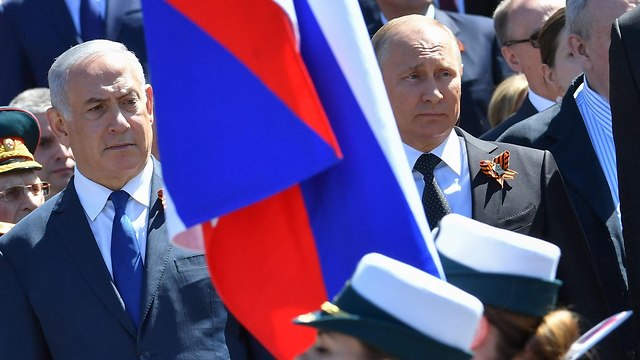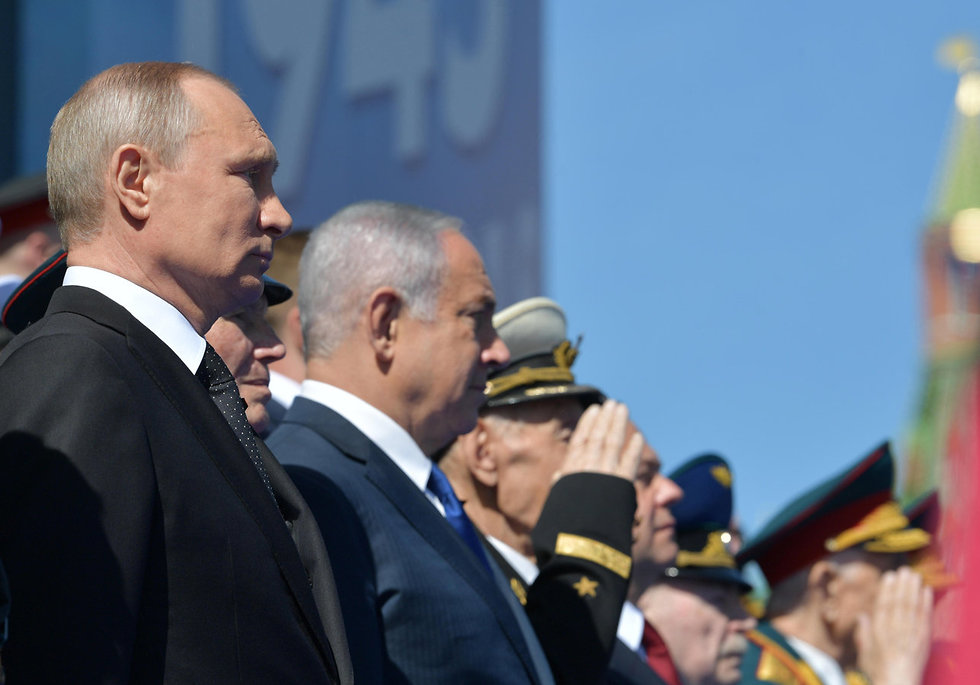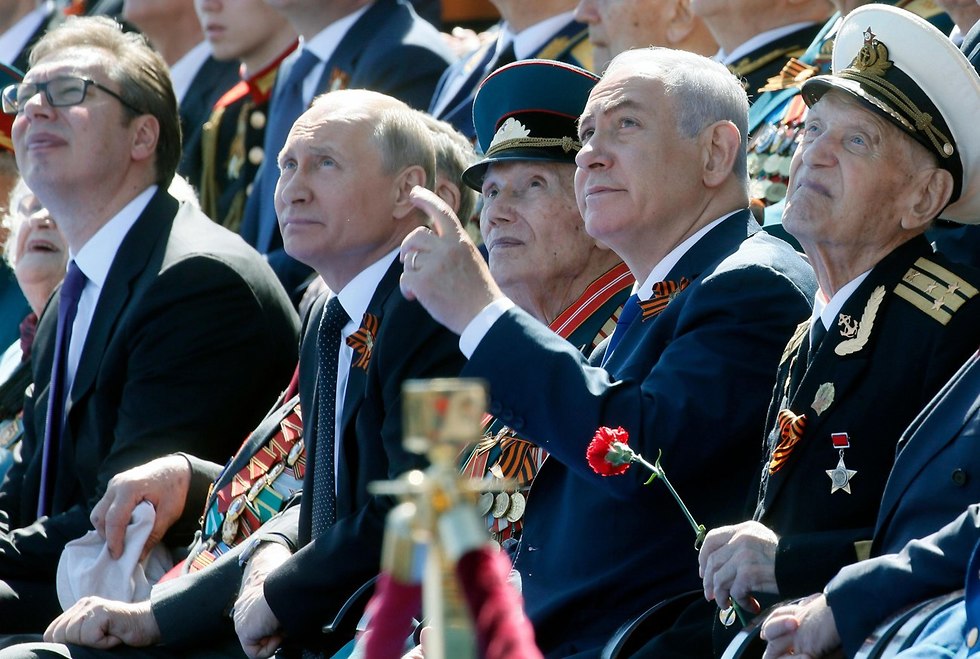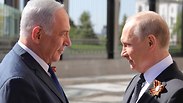

PM Netanyahu seeks understanding on Iran with Putin
Netanyahu attends WWII Victory Parade in the Russian capital as Putin's honored guest; 'I salute the heroism of hundreds of thousands of Jews who fought in the ranks of the Red Army,' prime minister says, before noting how Iran, 73 years after the Holocaust, 'calls for the destruction of anther six million Jews.'
Prime Minister Benjamin Netanyahu met with Russian President Vladimir Putin at the Kremlin Wednesday on a day marking Russia's World War II victory over Germany, stressing to him Iran's similarities to the Nazi regime and Israel's right to defend itself against it.
"We in Israel do not forget for a moment the great sacrifice of the Russian people and the Red Army in the victory over the Nazi monster," Netanyahu remarked at the beginning of their meeting, ahead of a parade commemorating the occasion.
"Neither do we forget the great lesson of the need to stand against a murderous ideology in time," he continued. "It is unbelievable, but 73 years after the Holocaust, there is a country in the Middle East, Iran, that is calling for the destruction of anther six million Jews."
Following the parade, Netanyahu and Putin attended a wreath-laying ceremony for the unknown soldier at the memorial for Red Army soldiers who fell in World War II and whose resting place is unknown. They laid flowers on the stones of the Moscow Hero City Monument in the presence of an honor guard, while the Israeli anthem played.
"I'm excited to participate, as President Putin's honored guest, in the parade commemorating victory over Nazi Germany in Moscow today," the prime minister said at the ceremony.
"I was very moved to hear the 'Tikvah' (Israel's national anthem) at the Red Square," Netanyahu added. "I salute the heroism of hundreds of thousands of Jews who fought in the ranks of the Red Army and in other allied armies.
"Sitting next to me, between us, was a veteran who was among the liberators of Auschwitz. We will never forget the meaning of your sacrifice, of those soldiers, along with the half a million Jewish soldiers in the Red Army, in ensuring the fate of Russia, of humanity and of our people, the Jewish people.
The prime minister then joined Putin for a reception at the Kremlin.
The two met to discuss military coordination amid yet another attack on Tuesday night on a Syrian base housing Iranian militias, which was attributed to Israel.
The Britain-based Syrian Observatory for Human Rights said missiles targeted depots and rocket launchers that likely belonged to Iran's elite Revolutionary Guard in Kisweh, killing at least 15 people, eight of them Iranians.
"I very much appreciate the opportunity to discuss regional problems with you, the attempts as you put it, to resolve the crises, to lift the threats in a prudent and responsible manner," Netanyahu told Putin ahead of their meeting.
"I conclude and say to you that I am very moved that you invited me to this parade as Prime Minister of Israel, as head of the state of the Jews, and you mentioned the Holocaust of the Jews today. This is additional testimony to the deep ties between our two peoples and I thank you for this."
"I have just finished almost ten hours in the company of President Putin," Netanyahu said in a video address at the end of the meeting. "We attended very moving events—the parade marking the victory over the Nazis and other events, and of course there were also good and useful talks.
"In these talks I presented our perspective on issues including Iran's secret nuclear archive and, of course, the current tension. I presented Israel's obligation and right to defend itself against Iranian aggression, from Syrian territory. The Iranians declare their intention to attack us. They are trying to transfer forces and deadly weapons there with the explicit goal of attacking the State of Israel as part of their strategy to destroy the State of Israel.
"I told President Putin that it is the right of every state, certainly it is Israel's right, to take such steps as are necessary to defend itself against this aggression. I think that matters were presented in a direct and forthright manner, and this is important. These matters are very important to Israel's security at all times and especially at this time."
According to Netanyahu, "These meetings always prove to be useful in the test of time." He added that following previous meeting, due to remarks ostensibly made by Putin and the Kremlin, it was feared that Israel's freedom of action will be constrained, but that proved to be false.
"I have no reason to think that this time it will be any different. I worked to safeguard Israel's interests," he affirmed. "The discourse was very direct and very honest. There is no better way to ensure Israel's supreme security interests.
Tensions between Israel and Iran are high over Iran's efforts to expand its military presence in Syria, where it is a key ally of President Bashar Assad. Repeated airstrikes attributed to Israel have killed Iranian fighters and prompted threats of reprisal from Tehran.
President Donald Trump's announcement Tuesday that the US would withdraw from the 2015 nuclear deal with Iran has triggered uncertainty and threatened to spark more unrest in the Middle East.
"The meetings between us are always important and this one is especially so," Netanyahu said ahead of his departure. "In light of what is currently happening in Syria, it is necessary to ensure the continued coordination" between the two militaries. Netanyahu made no mention of the overnight strikes.
The Israeli and Russian militaries have been in contact throughout much of Russia's intervention in Syria, where Moscow has waged an air campaign in support of Assad's forces since 2015. Russia also considers Iran a strategic ally.
Israel views Iran as its archenemy, citing Iran's calls for Israel's destruction, support for terror groups across the region and growing military activity in neighboring Syria. Israel has warned that it will not allow Iran to establish a permanent military presence in Syria.
The IDF went on high alert Tuesday and bomb shelters were ordered open in the Golan Heights following reports of "irregular activity of Iranian forces in Syria." After an uneventful night, the military on Wednesday called on residents to return to "full civilian routine," meaning studies and excursions would continue as usual, although the shelters would remain open.
Israel, which almost never confirms or denies airstrikes in Syria, did not officially comment on Tuesday's attack. Such strikes have become more frequent recently. The Syrian Observatory said the casualty number from Tuesday' strike is likely to go up because of a large number of people who were wounded and a number of people who are missing.














